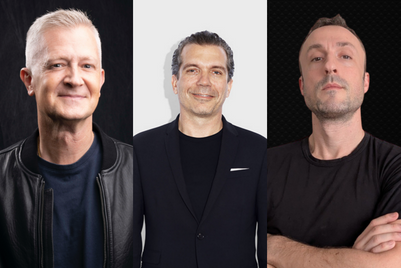
The Walkman's relaunch comes at a time when the portable music player market it pioneered is now dominated by innovations such as MDs, MP3 Players and the iPod.
However, Sasie Vadhanapanich, planning director at Leo Burnett, said the Walkman - launched in 1979 - remained the most widely used portable music player device in Thailand. The product has been available in the market for seven years, and is priced between an affordable 800 baht (US$19.5) and 8,000 baht.
"MP3s are not as widespread here. It's still tapes and CDs because these are cheaper. The Walkman is still the number one (device) in terms of popularity among teenagers. Sony Walkman has always been the cool accessory for the young teens. Universally, teens love music and Sony has the design to make a player look hip. No other designs come close," said Vadhanapanich.
Sony Walkman's main competitors in Thailand are Iowa and Panasonic, both of which compete on pricing. However, Vadhanapanich added Thai teens made purchasing decisions based on design and brand image, then pricing.
"We have to give the consumers an emotional link. When people look at buying the Walkman, they are not so concerned about the features, but about the design. In terms of innovation, there is nothing new that you can do with the player. Teens tend to upgrade their Walkman when there is a new design, just as they do with mobile phones," she said.
The campaign, 'Plastic city' aims to boost the brand's position among younger consumers and enhance usage of the portable player. Designed with a 'Matrix' feel, the creative ties in with the teen culture of language, music, identity, passion and soul.
The campaign includes a 45-second and 30-second version of the TV spot.
It shows how the Walkman culture can separate ordinary youngsters from extraordinary, cool teens, giving them "soul".
"The Plastic city is symbolic of the mundane, day-to-day living. It's about breaking away from the norm. The storyline shows a world where all the people look like wax figures. One of them, wearing a hood, is listening to her Walkman when her headphones drop, allowing the others to see she is different - she has ears. The girl passes the Walkman to someone else who becomes 'human' when he begins listening to music. The tagline is 'R U Walkman'," Vadhanapanich added.
Targeting the 14- to 20-year old age group, the TV campaign will be supported by events at popular teen hangout places.
The campaign is the first Sony Walkman work done by Leo Burnett Thailand since the agency was awarded the business early this year.


+(900+x+600+px)+(3).png&h=334&w=500&q=100&v=20250320&c=1)
+(900+x+600+px).jpg&h=334&w=500&q=100&v=20250320&c=1)
.jpg&h=334&w=500&q=100&v=20250320&c=1)


.jpg&h=334&w=500&q=100&v=20250320&c=1)
+(900+x+600+px).png&h=334&w=500&q=100&v=20250320&c=1)

+(900+x+600+px)+(1).png&h=334&w=500&q=100&v=20250320&c=1)




